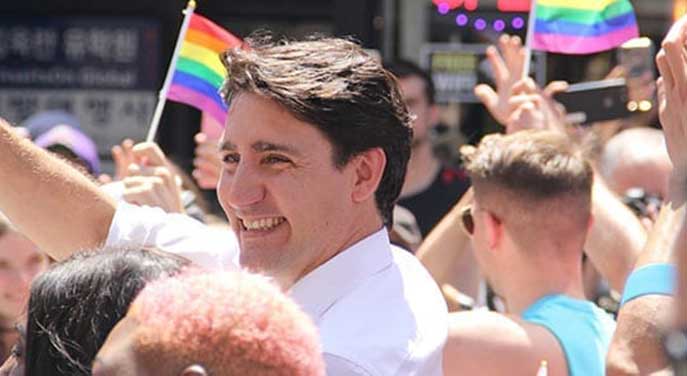 The Parliamentary Budget Officer has finally answered the burning question: will Prime Minister Justin Trudeau’s budget balance itself? The answer: yes, it will – but not for another almost 50 years. According to data published by the PBO, under status quo policies the federal government will balance its budget again in the year 2070.
The Parliamentary Budget Officer has finally answered the burning question: will Prime Minister Justin Trudeau’s budget balance itself? The answer: yes, it will – but not for another almost 50 years. According to data published by the PBO, under status quo policies the federal government will balance its budget again in the year 2070.
By then, Ottawa will have added another $2.7 trillion to its debt tab. That’s on top of its current $1 trillion of federal debt.
More deficits mean more debt that Canadian kids and grandkids will need to pay back. A baby born this year owes more than $26,000 in federal government debt. By the time the budget is balanced a half-century from now, newborns will be on the hook for about $67,000.
Not to mention the interest charges that will eat away at $3.8 trillion worth of taxpayers’ money by 2070. Starting in 2043, interest charges will exceed the government’s budget deficits. This means that over the next five decades, Canadian families and businesses will lose out on trillions of dollars that can’t go to hospitals, grocery bills or hiring more workers. Instead, the money will be going to the owners and managers of bond funds to service the debt.
The PBO estimates that once the feds finally do balance the budget in 2070, it will take at least another two decades to pay off the debt.
 This is already alarming news, but here’s the scariest part: the PBO assumes the effective interest rate will eventually settle in at 2.84 per cent, which would be lower than it was at any time between 1991 and 2014. The PBO also estimates that Canada’s economy will embark on a steady upward climb. What happens if reality isn’t as rosy? What happens if interest rates spike or Canada stumbles into another downturn? Will any of today’s taxpayers ever live to see a debt-free Canada?
This is already alarming news, but here’s the scariest part: the PBO assumes the effective interest rate will eventually settle in at 2.84 per cent, which would be lower than it was at any time between 1991 and 2014. The PBO also estimates that Canada’s economy will embark on a steady upward climb. What happens if reality isn’t as rosy? What happens if interest rates spike or Canada stumbles into another downturn? Will any of today’s taxpayers ever live to see a debt-free Canada?
These are just status quo projections, of course. There is nothing to stop politicians from balancing the budget well before 2070 other than lacking the spine to make it happen.
Unfortunately, the federal government continues to take taxpayers in the wrong direction. The 2021 budget increases permanent federal government spending by $100 billion by 2026 with no plan for how to pay for it.
Since the beginning of July, we’ve seen the government announce $440 million for aerospace companies, $420 million for Algoma Steel, $1.3 billion for the SkyTrain in British Columbia, an additional $1.4 billion for its climate-change fund and a $5.2-billion bailout to Newfoundland and Labrador. No wonder Postmedia columnist Chris Nelson concluded that “we are no longer being bribed with our own money. We’re being bribed with our great-grandchildren’s money.”
Perhaps the most important question for Canadians worried about the cost of living during the next election is: “How are you going to pay for all of that spending?”
It’s important to remember that this new spending is on top of an already bloated, pre-pandemic budget. The federal government spent more money in 2018, before COVID, than in any single year – wartime, peacetime, recession year or depression year – according to the Fraser Institute. Yes, that’s after accounting for inflation and population growth.
The PBO projections paint a stark picture for taxpayers. If politicians don’t change course, we will have to endure nearly 50 more years of deficits. It’s as if in 1971, the year Justin Trudeau was born, his father’s government had set Canada on a path of not balancing the budget until this year.
The infant Justin Trudeau would have deserved better. Canadian taxpayers today deserve better. It’s time for our politicians to take deficits seriously again and tighten their belts like the rest of us.
Franco Terrazzano is the Federal Director of the Canadian Taxpayers Federation.
Franco is a Troy Media Thought Leader. For interview requests, click here.
The views, opinions and positions expressed by columnists and contributors are the authors’ alone. They do not inherently or expressly reflect the views, opinions and/or positions of our publication.
© Troy Media
Troy Media is an editorial content provider to media outlets and its own hosted community news outlets across Canada.


